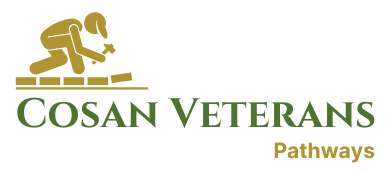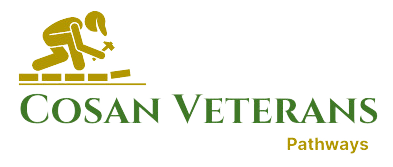Community Association Management is a great option for veterans looking for work after they leave the military. Working as a CAM, you’d oversee the day-to-day operations of HOAs, condo associations, and other types of community associations. Everything from handling finances to enforcing rules and regulations to maintaining common spaces to keeping in touch with residents is part of this. This article will go through what a CAM does, the qualifications and coursework you’ll need, and the certifications and licensure you’ll need to practice in Florida. Veterans in Florida who are seeking for a new job or a way to use their talents in a different field may find becoming a CAM to be an excellent option.
What is a CAM?
Homeowners’ associations (HOAs), condominium organizations, and other community associations all hire professionals called Community Association Managers (CAMs) to oversee their day-to-day operations. Community association boards of directors or trustees engage CAMs to oversee the daily operations of their communities.
What does a community association manager do?
Community association management is a fascinating field since the CAM is responsible for advising and supervising the board of directors of a community association. In addition, he or she manages the association’s daily operations, finances, and administrative matters. Volunteers make up the board, while the management is compensated for their efforts. Managers of community associations are charged with carrying out the provisions of the association’s governing documents in order to promote the common benefit.
The CAM is a vital part of the association’s day-to-day operations, contributing to budgeting and overseeing the maintenance of shared spaces. The manager is responsible for keeping the board informed of any relevant changes in local legislation and taking an active role in complying with them. Bookkeeping, financial management, and internal and external communications are also part of a property manager’s service offering.
Maintenance:
Managers of community associations must assess the state of common spaces and facilities and coordinate with service providers to address any necessary repairs, maintenance, or upgrades. In addition to providing the required resources and keeping track of payments and bills, they also monitor the vendor bidding process and supervise the contractors’ work.
Help with administration:
In addition to taking care of paperwork and preserving records for vendors, the CAM is responsible for providing administrative services to the board in the area of procurement management. It might also involve face-to-face and online communication, as well as the production of handouts, flyers, and meeting reports.
Budgeting and financial management assistance:
Specifically, you’ll be assisting the board with budgeting, contract management, and financial report and statement writing. Property managers may also be responsible for preparing taxes, liaising with attorneys, and hiring a certified public accountant.
Facilitating board gatherings:
Meetings must be called in accordance with the schedules, announcements must be sent out, important reports and materials must be sent to the BOD in advance, minutes must be taken, and data must be collected for presentations concerning potential issues confronting residents.
Homeowner communication:
The manager is responsible for maintaining open lines of communication with the homeowners via email, phone, newsletters, fliers, regular mail, and various types of signage.
Assorted responsibilities:
The board of directors may consult with the community association manager on matters of building policy. If you want to advance in your job, having expert-level knowledge in this field is a must. The services of a property manager may also be necessary for such tasks as determining whether services are needed, soliciting bids from vendors, and overseeing their work.
Benefits of becoming a CAM
Gaining employment as a Community Association Manager (CAM) may be advantageous for several reasons. Among the many advantages of being a CAM are the following:
Competitive pay:
As of May 2023, the BLS reported a median annual salary of $59,660 for property, real estate, and community association managers. Additional training and certification might lead to increased pay for CAMs.
Heavy interest:
The area of community association management (CAM) is booming, and skilled CAMs are in high demand. The need for community association managers (CAMs) is predicted to grow along with the number of community associations and new developments.
Career options galore:
Community association managers might work for HOAs, condo boards, or private firms that handle property management. Because of the wide number of fields in which CAMs can find work, they can choose a career path that best fits their own goals and beliefs.
Secure employment:
CAMs are essential to the smooth administration of community organizations, assuring the upkeep and financial security of the community. As CAMs are often crucial to the development of the communities they serve, this ensures a secure employment climate for them.
Advancement in one's career:
In order to advance in one’s career as a CAM, one must commit to continual education and training. Certified Association Managers (CAMs) can improve their marketability and earnings potential by obtaining professional qualifications and designations like the Certified Manager of Community Associations (CMCA).
As CAMs play a crucial role in ensuring that communities function well and inhabitants are pleased, being one may also bring a sense of pleasure and satisfaction.
How to become a community association manager?
A high school diploma or its equivalent is usually required for entry into the area of community association management, while a bachelor’s degree in business, real estate, or a similar topic may be preferred by some companies. Experience in property management or real estate may also be gained through internships and entry-level roles. A professional certification from an organization like the Community Associations Institute can also help you get hired. Community association managers handle the day-to-day operations of residential or commercial properties, therefore they must have excellent communication, organizational, and problem-solving abilities.
How to Get Started as a CAM
You may have obtained some of the skills necessary for a career as a Community Association Manager (CAM) in Florida as a veteran. Here are the requirements to become a CAM in the state of Florida:
Achieve the necessary level of education:
Community Association Managers in Florida are required to have formal training in the field. Pre-licensing education is mandated by both the Florida CAM Council and the Community Associations Institute (CAI), with the former requiring 18 hours and the latter 16. These classes are eligible for reimbursement under the GI Bill for eligible veterans.
Veteran status can be used to satisfy work history prerequisites:
Experience in community association management is required in addition to the necessary education. Two years of work experience is required by the Florida CAM Council, and military service is acceptable if it is directly related to the job. Veterans may have obtained expertise in leadership, management, and organization during their time in the armed forces.
Get your credentials in order:
Certification by the Florida CAM Council or CAI is mandatory for those who meet the minimum educational and work experience criteria. Community association management expertise is tested on a certification exam.
Apply for licensing:
At long last, people need to submit an application for a CAM license with the Florida Department of Business and Professional Regulation (DBPR). A state-approved provider, like the Florida Department of Law Enforcement (FDLE), will take your electronic fingerprints as part of the application process. Veterans may make a successful transition into a rewarding profession as a Physician Assistant by following these steps and utilizing available resources.
Skills and Education Required to Become a CAM
To work as a CAM, you need to have a certain set of abilities and knowledge, such as but not limited to:
1. Education:
1. GED or High School Diploma-
In the state of Florida, the minimum educational requirement for a Community Association Manager (CAM) position is a bachelor’s degree in a relevant discipline, such as business administration or hotel management. The Florida Department of Business and Professional Regulation (DBPR) mandates that community association managers have completed at least 18 semester hours or 27 quarter hours of coursework at an approved college or institution.
2. Bachelor's Degree or Higher in Required Field-
A bachelor’s degree in a relevant discipline, such as business administration or hotel management, is required in addition to a high school diploma. This degree needs to come from a recognized educational institution.
3. Community Association Management Courses-
The Florida Department of Business and Professional Regulation (DBPR) mandates that community association managers have completed at least 18 semester hours or 27 quarter hours of coursework at an approved college or institution. Community association legislation, money management, and upkeep and operations are all possible subjects for these classes.
2. Skills:
1. Expertise in communicating -
The ability to effectively communicate with residents, suppliers, and board members is crucial for CAMs. If the community’s rules and regulations, as well as planned activities, are effectively communicated, then everyone will benefit. CAMs require strong verbal and written communication skills as well as the ability to actively listen to clients and address their problems.
2. Capacity for Order -
CAMs need time management skills and the ability to prioritize their job load. In order to keep the neighborhood association running efficiently and successfully, strong organizational abilities are essential. Effective time and resource management, as well as the flexibility to adjust to new demands, are essential skills for CAMs.
3. Able to handle one's finances
Budgeting, dues and fee collection, and payment of suppliers all fall under the CAM’s purview as the financial manager of the community association. To guarantee that the community’s financial resources are used properly and effectively, sound financial management skills are essential. Effective cash management, analysis of financial accounts, and financial decision-making are all essential skills for CAMs.
4. Competence in serving customers -
CAMs need to excel in communicating with residents, suppliers, and the board. They need to be skilled at fielding customer complaints and mediating disputes. A successful community organization relies on the trust and support of its members and the surrounding neighborhood.
Official sources should be consulted for the most up-to-date information about educational prerequisites. It’s also crucial to examine the regulations of the state in which you intend to operate as a CAM, as they may differ from those listed above.
Certification and Licensing Requirements
In Florida, being a CAM does not necessitate certification, although having it might show that you know what you’re doing. Passing an exam and demonstrating experience are necessary to get the Certified Manager of Community Associations (CMCA) credential from the Community Associations Institute (CAI).
Florida Department of Business and Professional Regulation (DBPR):
The DBPR is the agency in Florida responsible for issuing licenses to anyone seeking to practice as CAMs in the state. One must submit an application with the proper money, complete a 16-hour pre-licensing course, and pass a license exam offered by the state. Once licensed, CAMs must maintain their credentials through further training.
Community Associations Institute (CAI):
The Certified Manager of Community Associations (CMCA) certification necessitates the following, according the Community Associations Institute (CAI) website:
- Degree: 16-hour community association management course completion.
- Experience: At least two years working with community associations.
- Having successfully completed a thorough examination covering the following areas of study:
- Administration, comprising the constitution, bylaws, elections, and code of conduct.
- Accounting, spending plans, savings, and investment are all aspects of financial management.
- All aspects of upkeep, such as building systems, contractors, and guarantees.
- Management of potential threats, such as ensuring a secure environment and purchasing necessary insurance.
- Information transfer; this includes PR, IR, and IR with owners.
Individuals can apply to take the CMCA test after these conditions are satisfied. The CMCA certification is theirs for the taking if they do well on the test.
The Florida CAM Council:
The Florida CAM Council also provides a certification for community association managers called the Florida Certified Association Manager (FCAM). To become a Florida Certified Association Manager (FCAM), you must meet the following standards, as outlined on their website.
The candidate must have completed 18 hours of community association management training from a recognized educational institution, with 2 of those hours dedicated to legal updates.
- Experience: A supervisory affidavit attesting to at least 24 months of experience in community association management or a comparable profession.
- To become a certified community association manager in Florida, you must first take and pass the Florida Community Association Management Exam (FCAM).
- Ethical thinking: a two-hour course must be completed.
- Proof of insurance is required in the form of a certificate of professional liability insurance.
If one meets these standards, they are eligible to apply for FCAM accreditation.
Instructions for Seeking VA Educational Benefits for Future CAM Professionals
Veterans in Florida who want to pursue a career as a Community Association Manager (CAM) may be able to get financial aid through the VA. Veterans can utilize their Post-9/11 GI Bill or Montgomery GI Bill funds to pay for the cost of CAM training programs and certification exams via the VA.
Here are some of the ways in which veterans may use their GI Bill money to afford the training and credentials necessary to work as a CAM:
Veterans should check the VA website or contact a VA representative to see if they qualify for educational benefits before submitting an application. Different types of benefits have different minimum service requirements.
Veterans should only enroll in programs or obtain certifications from organizations recognized by the Department of Veterans Affairs. This verifies that the certification or degree program is accredited and hence qualified for VA financing.
Applying for VA educational benefits is the next step for veterans once they have confirmed their eligibility and selected an approved program. Benefit applications can be submitted either online or in person, depending on the specifics of the program.
If your tuition costs are more than the Post-9/11 GI Bill would pay for, the Yellow Ribbon Program may be able to help. Before applying to a program, veterans should find out if they accept applications through the Yellow Ribbon Program.
Contact the VA’s Education Call Center or a VA representative with any questions or concerns you may have about the application process or your educational benefits.
The costs of getting the training and credentials needed to work as a CAM in Florida can be significantly reduced by making use of one’s educational advantages. This can facilitate an easier and more open transition into the civilian workforce for veterans.
Conclusion
There is a lot of work involved in becoming a Community Association Manager (CAM), but the rewards might be worthwhile. As a CAM, you’ll get to work with all kinds of interesting individuals, get to know new communities, and keep things running well by maintaining and bettering them. There is a significant need for CAMs, which results in secure employment and good pay.
Veterans with an interest in this sector should know that their prior experience and educational benefits can be applied toward fulfilling the prerequisites and paying for the necessary training and certification. Veterans can find success in the CAM field by taking use of these resources and following the advice in this article. It’s important to keep in mind that the path to becoming a CAM is one that can be long and arduous, but the benefits at the end can be quite worthwhile.


